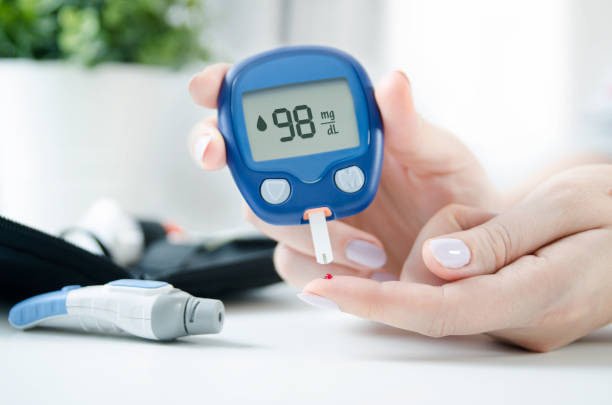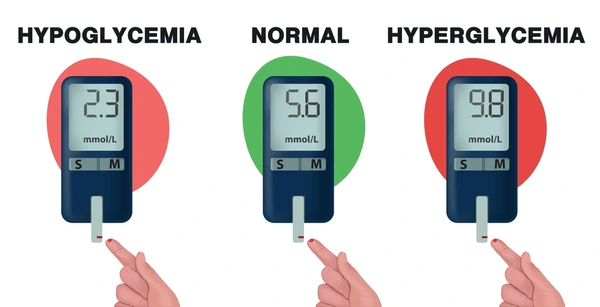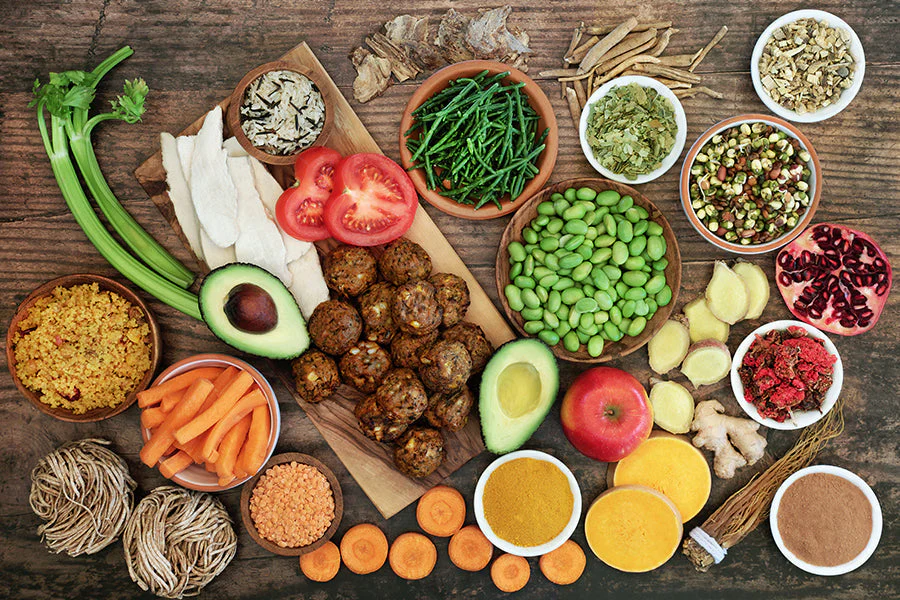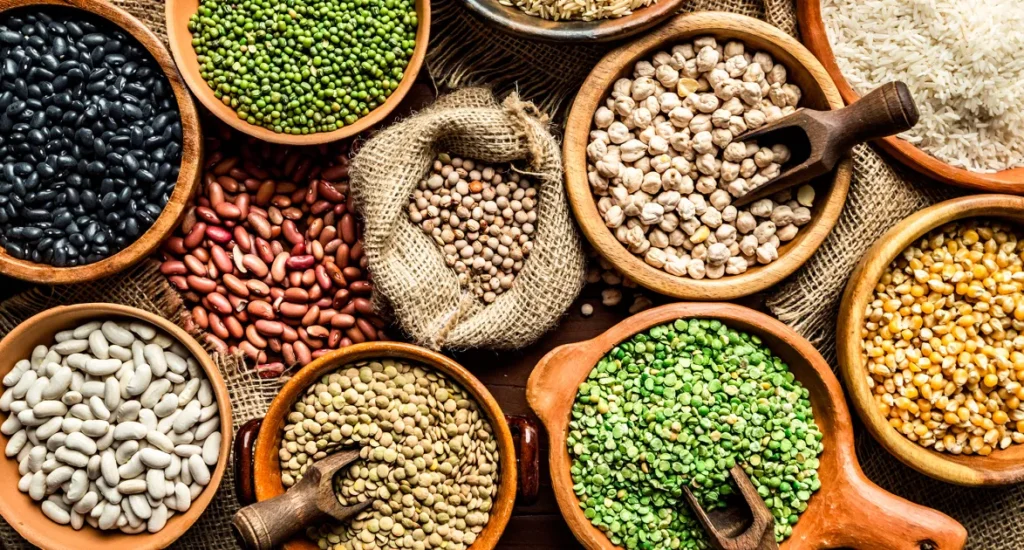Maintaining healthy blood sugar levels is essential for overall health, especially with the rise of conditions like type 2 diabetes and insulin resistance. Blood sugar, or glucose, provides the body with energy, but when levels are too high or low, it can lead to serious health problems. Understanding how to manage blood sugar through diet is key to preventing these issues and promoting well-being.
Choosing the right foods can help regulate blood sugar and maintain balance in the body. Certain foods, like those rich in fiber, healthy fats, and protein, can slow the absorption of sugar and improve insulin sensitivity. Incorporating more whole grains, leafy greens, and lean proteins into your diet can support stable blood sugar levels. By making mindful food choices, you can naturally support your body’s ability to manage blood sugar and reduce the risk of developing related health issues.

Understanding Blood Sugar: What It Is and Why It Matters
Blood sugar refers to the amount of glucose in your bloodstream. Glucose comes from the carbohydrates you eat and is a primary source of energy for your body’s cells, organs, and brain.
When you eat, your body breaks down carbohydrates into glucose, which enters the bloodstream. The pancreas produces insulin, a hormone that helps move glucose into your cells for energy or storage. This process keeps blood sugar levels balanced, providing a steady supply of energy.
If blood sugar levels become too high or too low, it can lead to various health issues. Consistently high or low blood sugar can become chronic problems if not managed properly, affecting overall health and well-being.
How Blood Sugar Affects the Body
Blood sugar imbalances, whether high or low, can trigger various health problems. These fluctuations affect different parts of the body, leading to issues like fatigue, mood swings, and poor concentration. Over time, unmanaged blood sugar imbalances can contribute to more serious conditions such as diabetes and heart disease.
High Blood Sugar (Hyperglycemia): High blood sugar happens when there’s an excess of glucose in the bloodstream. Common symptoms include feeling tired or fatigued, needing to urinate more often, increased thirst, and blurred vision. If not treated, chronic high blood sugar can lead to more severe complications like ketoacidosis, a condition where the body starts breaking down fat for energy, leading to the buildup of acids in the blood, which can be life-threatening.
Low Blood Sugar (Hypoglycemia): Low blood sugar occurs when glucose levels drop too low. This can lead to symptoms like shakiness, dizziness, confusion, sweating, and a rapid heartbeat. In more severe cases, it can cause fainting, seizures, or even loss of consciousness. Promptly addressing low blood sugar is important to prevent serious health risks.
Long-Term Effects
Chronic high blood sugar, often linked to diabetes or prediabetes, can lead to several serious health issues:
Nerve Damage (Neuropathy): High blood sugar can cause tingling, pain, or numbness in the hands and feet.
Kidney Damage (Nephropathy): Excess glucose puts pressure on the kidneys, potentially leading to kidney failure.
Vision Loss (Retinopathy): Damaged blood vessels in the eyes can lead to blindness.
Heart Disease: Imbalanced blood sugar contributes to inflammation and damage to the arteries, increasing heart disease risk.
Weakened Immune Function: Elevated blood sugar weakens the immune system, making infections more likely and slowing wound healing.
Managing blood sugar is crucial, not only for those with diabetes but for everyone looking to maintain long-term health.
What Are Normal Blood Sugar Levels ?

Understanding the ranges of healthy blood sugar levels is crucial for recognizing imbalances. These levels are typically measured in milligrams per deciliter (mg/dL):
| Condition | Blood Sugar Range (mg/dL) |
|---|
| Fasting (no food for 8 hrs) | 70 – 99 (normal) |
| After meals (2 hours) | Less than 140 (normal) |
| Prediabetes | 100 – 125 (fasting) |
| Diabetes | 126 or higher (fasting) |
For non-diabetics, it’s important to maintain normal blood sugar levels to prevent insulin resistance and support metabolic health. Blood sugar can vary with diet, stress, sleep, and exercise, so adopting healthy habits, particularly a balanced diet, is essential.
How Food Affects Blood Sugar
Different foods impact your blood sugar in different ways. Carbohydrates are the main macronutrient that raises blood glucose. However, not all carbs are equal. Simple sugars from soda, candy, and white bread cause rapid spikes in blood sugar, while complex carbohydrates like whole grains and legumes digest slowly and result in a gradual rise.
Protein and healthy fats have minimal impact on blood sugar and can actually help stabilize it when paired with carbohydrates. Fiber also plays a critical role by slowing down the absorption of sugar into the bloodstream.
By understanding the glycemic index (GI)—a measure of how quickly a food raises blood sugar—you can make smarter dietary choices. Low-GI foods are ideal for blood sugar control.
Top 15 Foods to Support Healthy Blood Sugar Levels
Now, let’s explore the best foods to include in your diet for stable and healthy blood sugar levels:

- Leafy Green Vegetables
Spinach, kale, Swiss chard, and collard greens are all highly nutritious and low in carbohydrates. These leafy greens are rich in antioxidants, which help fight inflammation, and magnesium, a mineral that supports better insulin sensitivity and blood sugar control. Incorporating these greens into your diet can help maintain healthy glucose levels.
Tips: You can add them to salads, stir-fries, or blend them into smoothies to boost your nutrient intake and enjoy their health benefits.
- Berries
Berries such as blueberries, raspberries, and strawberries are not only tasty but also packed with important nutrients like fiber and antioxidants. These nutrients are beneficial for reducing inflammation in the body, which is often associated with insulin resistance. Additionally, berries have a low glycemic index, meaning they are less likely to cause rapid spikes in blood sugar levels, making them a great option for those looking to manage their glucose levels naturally.
Serving idea: To create a balanced and nutrient-rich breakfast, try pairing berries with Greek yogurt or adding them to a bowl of oats. This combination provides a good mix of fiber, protein, and healthy antioxidants to fuel your morning.
- Whole Grains
Whole grains like quinoa, barley, oats, and brown rice are excellent sources of complex carbohydrates and fiber. These nutrients work together to help slow the absorption of glucose into the bloodstream, providing a steady and sustained release of energy. This gradual absorption helps prevent sudden spikes in blood sugar levels, making whole grains a smart choice for maintaining stable glucose levels. Including these grains in your diet can also support overall digestive health, thanks to their high fiber content.
Choose: Opt for steel-cut oats instead of instant oats, as they are less processed and retain more fiber, making them a healthier option for blood sugar control. Steel-cut oats have a lower glycemic index, which means they won’t cause rapid blood sugar increases.
- Nuts and Seeds
Nuts and seeds like almonds, walnuts, flaxseeds, chia seeds, and pumpkin seeds are rich in healthy fats, fiber, and plant-based protein. These nutrients work together to slow down digestion, which helps prevent quick rises in blood sugar after eating. They also help you feel full for a longer time, which may reduce the urge to snack too often. In addition, they are good for heart health and provide important minerals like magnesium. Eating a small portion each day can support blood sugar control and overall wellness.
Snack idea: Enjoy a small handful of raw almonds or make a chia pudding topped with berries for a filling and healthy snack.
- Legumes

Legumes such as beans, lentils, and chickpeas are great choices for supporting healthy blood sugar levels. They are packed with fiber and plant-based protein, which slow down the absorption of glucose into the bloodstream. This helps prevent sudden spikes in blood sugar after meals. The fiber also supports good digestion and helps you feel full longer, which can reduce overeating. Legumes are also rich in vitamins, minerals, and antioxidants that benefit overall health. Including them regularly in your diet can support better blood sugar control and energy balance throughout the day.
Try: Add chickpeas to salads, enjoy a warm bowl of lentil soup, or use hummus as a healthy dip or sandwich spread.
- Avocados
Avocados are a creamy, nutrient-rich fruit that can help support healthy blood sugar levels. They are high in heart-healthy monounsaturated fats and fiber, which play a key role in slowing down digestion and the release of glucose into the bloodstream. This helps keep blood sugar levels steady after meals and prevents sudden spikes. The healthy fats in avocados also promote better insulin function and improve satiety, making you feel full and satisfied for longer. In addition, avocados contain important vitamins and minerals that support overall wellness.
Enjoy as: Add sliced avocado to whole grain toast, mix into fresh salads, or mash it into guacamole for a delicious, blood sugar-friendly option.
- Fatty Fish
Fatty fish like salmon, sardines, mackerel, and trout are rich in omega-3 fatty acids. These healthy fats help lower inflammation in the body, which is important for people with blood sugar problems. Omega-3s also support better insulin function, helping the body use sugar more effectively. Eating fatty fish regularly may also protect the heart and improve overall health.
Serving: Try to eat two servings of fatty fish each week. This could mean grilled salmon one day and a small serving of sardines or mackerel another day.
- Greek Yogurt

Greek yogurt is a healthy food choice that is high in protein and has fewer carbohydrates than regular yogurt. This makes it a great option for keeping your blood sugar levels steady. The protein in Greek yogurt helps you feel full longer and slows down the rise of blood sugar after eating. It’s also a good source of calcium and other nutrients that support bone and overall health.
Top with: Add a handful of nuts and fresh berries on top for extra fiber, healthy fats, and natural sweetness. This makes a tasty and balanced snack or even a light breakfast.
- Cinnamon
Cinnamon is a popular spice that may help support healthy blood sugar levels. Some studies suggest that cinnamon can improve how the body responds to insulin, making it easier for cells to absorb sugar from the blood. It may also help lower fasting blood sugar levels, especially when used regularly in small amounts. Besides its health benefits, cinnamon adds a warm and sweet flavor without the need for added sugar.
Tip: Try adding cinnamon to your tea, oatmeal, or smoothies. You can also use it in baking or sprinkle it over fruit or yogurt for extra taste and health support.
- Apple Cider Vinegar
Apple cider vinegar is a natural remedy that may help control blood sugar levels, especially after meals. Research shows that it can improve the way insulin works in the body, helping sugar move from the blood into the cells more easily. This can lead to lower blood sugar spikes after eating. It may also help with digestion and give a slight boost to metabolism when used properly.
Use: Mix one tablespoon of apple cider vinegar in a glass of water and drink it before meals. However, it’s best to talk to your doctor before starting this, especially if you take medication or have any health conditions.
- Sweet Potatoes
Sweet potatoes are a healthy and tasty alternative to regular white potatoes. They have a lower glycemic index, which means they cause a slower and steadier rise in blood sugar levels. This makes them a better choice for people who need to manage their blood sugar. Sweet potatoes are also full of fiber, which helps with digestion, and they provide important vitamins like vitamin A and C, along with antioxidants that support overall health.
Cooking idea: Try baking or roasting sweet potatoes with a little olive oil and your favorite herbs. This brings out their natural sweetness and makes a delicious and nutritious side dish.
- Eggs
Eggs are a nutrient-packed food that is high in protein and low in carbohydrates. This makes them a great choice for stabilizing blood sugar levels. The protein helps keep you feeling full longer, preventing unnecessary snacking and helping to control your appetite. Eggs also provide essential vitamins and minerals, such as vitamin B12, choline, and selenium, which are important for overall health.
Enjoy: You can enjoy eggs in many ways, such as boiled, scrambled, or poached. They’re easy to prepare and can be added to a variety of meals, making them a versatile and satisfying option for breakfast, lunch, or dinner.
- Broccoli and Cruciferous Vegetables
Broccoli, cauliflower, cabbage, and Brussels sprouts are all part of the cruciferous vegetable family and are packed with nutrients that support overall health. These vegetables contain sulforaphane, a natural compound that has been shown to help reduce blood glucose levels. Eating these vegetables regularly can help improve insulin sensitivity and support healthy blood sugar levels. They are also rich in fiber, vitamins, and antioxidants, which contribute to better digestion and immune health.
Preparation: To get the most health benefits, try steaming or roasting these vegetables. Steaming helps preserve their nutrients, while roasting brings out their natural flavors. Add a little olive oil and your favorite herbs for a tasty and nutritious side dish.
- Turmeric
Turmeric is a bright yellow spice known for its active compound, curcumin, which offers a range of health benefits. Curcumin has strong anti-inflammatory properties that can help reduce inflammation in the body, which is important for managing blood sugar levels. Some studies suggest that turmeric may also help lower blood sugar by improving insulin sensitivity, making it a useful addition to a blood sugar-friendly diet.
Add to: You can easily incorporate turmeric into your meals. Add it to curries for extra flavor, mix it into smoothies for a healthy boost, or enjoy a warm golden milk latte made with turmeric, milk, and spices like cinnamon. These are great ways to enjoy the benefits of turmeric while adding a tasty twist to your meals and drinks.
- Garlic
Garlic is not only a flavourful addition to your meals but also offers health benefits, especially for blood sugar management. Studies show that garlic can improve insulin sensitivity, which helps your body use insulin more effectively and regulate blood sugar levels over time. This makes garlic a great choice for supporting overall metabolic health. It also has antioxidant and anti-inflammatory properties, which further contribute to better health.
Use in: Garlic can be easily added to a variety of dishes. Use it in stir-fries for a savory flavor, mix it into sauces for added depth, or toss it into soups for a warming, aromatic touch. Its versatile nature makes it simple to include in your daily meals.
Foods to Avoid for Blood Sugar Control
While including blood sugar-friendly foods is essential, avoiding certain items can have a significant impact on managing blood sugar levels:
Sugary Drinks: Beverages like soda, energy drinks, and sweetened juices are high in sugar and can lead to rapid spikes in blood sugar. These drinks provide little nutritional value and can cause your blood glucose levels to rise quickly, leading to energy crashes later.
Refined Carbs: Foods like white bread, pasta, and pastries are made from refined carbohydrates, which are digested quickly and cause blood sugar to spike. These foods lack the fiber that helps slow down digestion, making them less ideal for blood sugar control.
Trans Fats: Found in many fried foods and processed snacks, trans fats can worsen insulin resistance. When insulin becomes less effective, your body struggles to regulate blood sugar properly, which can lead to higher levels over time.
Excess Alcohol: Drinking too much alcohol can cause fluctuations in blood sugar levels, either causing them to drop too low or rise too high. Additionally, excessive alcohol consumption can impact liver function, which plays a crucial role in managing blood sugar levels.
Processed Meats: Processed meats, such as sausages, hot dogs, and deli meats, often contain additives and preservatives that are linked to insulin resistance. Regular consumption of these foods can increase the risk of developing metabolic issues, including higher blood sugar levels.
Lifestyle Tips for Blood Sugar Balance
Food is just one piece of the puzzle. To truly support stable blood sugar, consider these lifestyle habits:

Regular Exercise
Physical activity is key to managing blood sugar levels. When you exercise, your muscles use glucose for energy, helping your body absorb sugar from the bloodstream more efficiently. Regular exercise, such as walking, swimming, or cycling, also improves insulin sensitivity, making it easier for your body to regulate blood sugar. Aim for at least 30 minutes of moderate exercise most days of the week to help keep blood sugar levels in check.
Stay Hydrated
Drinking enough water is essential for overall health and blood sugar management. Proper hydration supports kidney function, which helps filter and remove excess sugar from the blood through urine. Staying hydrated can also prevent dehydration, which can affect blood sugar levels and cause fluctuations. Aim to drink plenty of water throughout the day, especially if you are active or live in a hot climate.
Get Enough Sleep
Quality sleep is vital for regulating blood sugar levels. Lack of sleep can interfere with insulin sensitivity, making it harder for your body to process glucose. Additionally, poor sleep can trigger hunger hormones, leading to overeating and weight gain, which can further impact blood sugar control. Try to get 7-9 hours of restful sleep each night to help maintain balanced blood sugar levels.
Manage Stress
Chronic stress can raise cortisol levels in the body, which in turn can increase blood sugar. When you’re stressed, your body goes into “fight or flight” mode, releasing hormones that make it harder for your body to regulate glucose properly. To manage stress, try relaxation techniques such as meditation, deep breathing exercises, or yoga. Regular stress management practices can help lower cortisol levels and keep blood sugar more stable.
Eat Mindfully
Eating mindfully involves paying attention to what, when, and how you eat. Slow down and chew your food thoroughly to support digestion, which helps regulate blood sugar levels. Avoid distractions like screens while eating to stay aware of your hunger cues and portion sizes. Eating balanced meals with a mix of proteins, healthy fats, and complex carbs can help keep blood sugar levels stable and prevent overeating.
Conclusion
Managing blood sugar naturally is possible with the right foods and healthy habits. Choosing nutrient-rich, low-glycemic foods like leafy greens, berries, whole grains, and healthy fats can help maintain balanced blood sugar levels. These foods help prevent spikes and drops in blood sugar, reducing the risk of complications related to blood sugar imbalances.
You don’t need to make drastic changes overnight. Start small by incorporating a few of these blood sugar-friendly foods into your meals. Add more physical activity, stay hydrated, and aim for quality sleep. These simple, consistent habits can lead to improved energy levels, better blood sugar control, and long-term health benefits.

Before making any major changes to your diet, it’s important to consult with a healthcare provider, especially if you have existing health conditions or take medication for blood sugar management. They can guide you on the best approach for your individual needs.
FAQs
- What foods are most effective in stabilizing blood sugar ?
Foods like leafy greens, whole grains, berries, fatty fish, and nuts are excellent choices for supporting stable blood sugar levels due to their low glycemic index and rich nutrient content. - Can certain foods lower blood sugar quickly ?
While some foods, like apple cider vinegar and cinnamon, may help support healthy blood sugar levels over time, they should not be relied upon for immediate blood sugar reduction. It’s essential to manage blood sugar consistently through a balanced diet and lifestyle. - How does exercise impact blood sugar levels ?
Exercise helps improve insulin sensitivity, allowing your body to better regulate blood sugar levels. Regular physical activity, including aerobic and strength training exercises, can lower blood sugar both immediately after exercise and in the long term. - Are fruits safe for people with diabetes ?
Yes, fruits can be part of a healthy diet for people with diabetes. Opt for fruits with a low glycemic index, like berries and apples, while avoiding large amounts of high-sugar fruits like grapes and bananas. Monitoring blood sugar levels is important when consuming fruit. - What foods should be avoided to maintain healthy blood sugar ?
Avoid foods that are high in refined sugars and carbohydrates, such as sugary drinks, processed snacks, and white bread. These foods can cause blood sugar spikes and contribute to insulin resistance over time.


